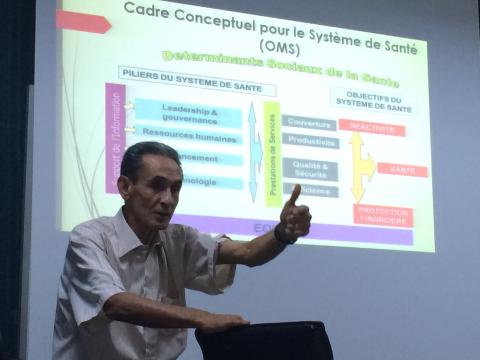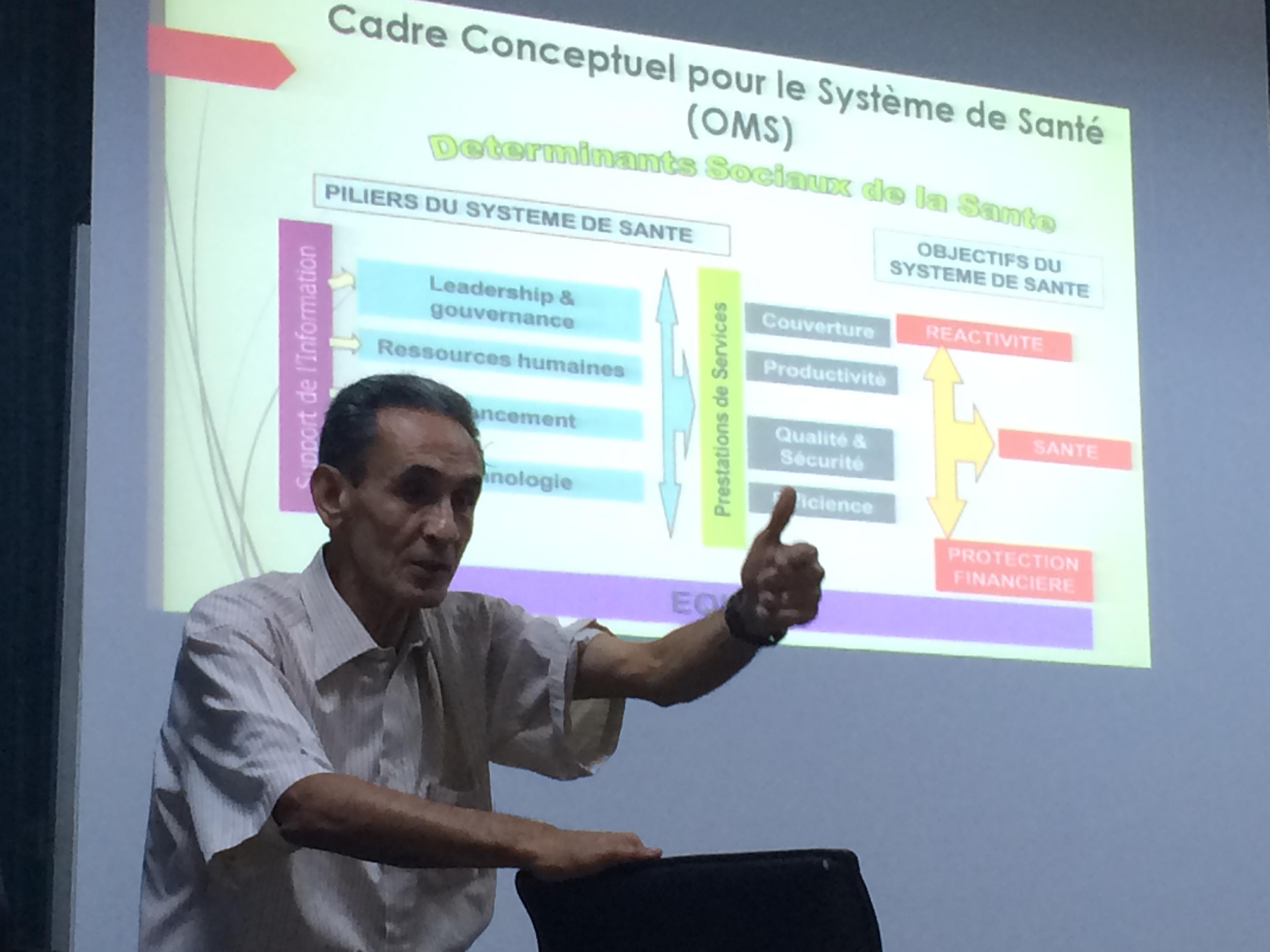
Conflicts, disasters and scandals – all too often, these are the type of stories about the health sector making it into the media headlines nowadays. The fact that the media can also be a force for good by exercising its role of a “fourth power” in a state is often forgotten.
In the context of Tunisia’s current health system reform, as well as with support from the EU-Luxembourg-WHO Universal Health Coverage Partnership (UHC-P), the role of the media has recently been brought to the forefront of the democratization process again.
The health sector in Tunisia has already been indicative of democratization for some years now: Taking advantage of the wave of enthusiasm for the bottom-up, democratic reform, spurred by the Arab Spring revolution, amongst the Tunisian population, the Ministry of Health decided to carry out an unprecedented “societal dialogue” process during the last 3 years, aimed at building a consensus around health system reforms, progressive implementation and evaluation. This process, supported by the UHC-P, involved broad and nation-wide consultations with a diverse range of stakeholders, resulting in the elaboration of the so-called “white book for a better health in Tunisia” – a document officially endorsed by the Ministry of Finance to serve as an example for reforms in other sectors.
This process of democratizing health reform has taken another unusual and positive turn in recent weeks by drawing on the democratic potential of the so-called “fourth power”: During 19-23 September 2016, the technical committee of the “societal dialogue”, in collaboration with the African Center for Training of Journalists and Communicators (CAPJC) and with support from the UHC-P, conducted a public health training for 25 journalists (press, radio, TV), within the framework of a broader training cycle for specialized journalists supported by the Friedrich Naumann Foundation for Freedom. The aim was to create, in the long run, a circle of journalists specialized on health issues, who would be able to produce, beyond the usual news related to the latest sanitary incidents, more in-depth news pieces, by taking a critical, but informed stand on the process of health system reforms and their outcomes.
The training included modules on the historic development, the challenges and the opportunities of the Tunisian health system, by defining basic health system concepts and addressing key issues such as health workforce training. It also involved discussions on the roles of the public and the private sector, academia, as well as civil society for advancing health access in Tunisia.
UHC-P support involved facilitating the participation of journalists from the most distant regions, providing technical guidance on the content of the event, and delivering an opening speech (through WHO WR) and two presentations (WHO Health System Advisor). For the training itself, no less than fifteen experts from various backgrounds were mobilized to deliver high-quality and participatory interventions.
The event’s outcome vastly exceeded initial expectations, not least due to the level of involvement and commitment of Tunisia’s new Minister of Health, Pr. Samira Merai. By inaugurating the event, the Minister seized this first opportunity presented to her, since her recent nomination, to talk in front of a group of journalists in an appeased, non-crisis environment, in order to announce that she would from now hold a monthly press conference.
The new Minister also reminded participating journalists that “Health is a common cause to all citizens and a vital sector that should be given due attention. Our common objective is to reduce the number of patients in Tunisia through efficient and comprehensive primary prevention. This is certainly the role of those working in the health sector, but also that of the media, which must put awareness-raising at the heart of their information work.”
The training itself made it into the media headlines in Tunisia, and it has been so well-received by the participating journalists that WHO and CAPJC now plans to open it to new journalists, while setting up more in-depth seminars for previous participants. The plan is to take advantage of the Minister’s proposal to organize a monthly press conference in order to gather the circle of journalists at CAPJC and update them about the latest developments in the health sector.
